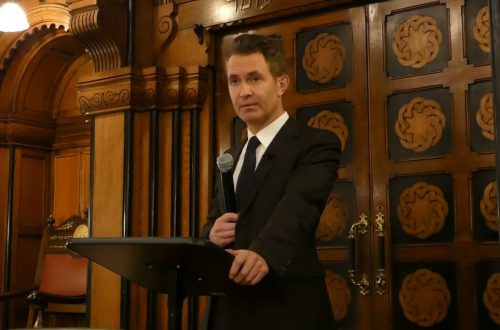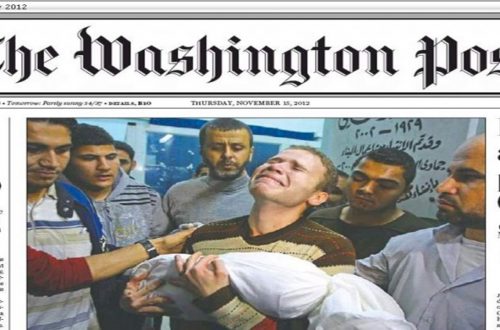Judith Butler and Rashid Khalidi have written a statement opposing perceived instances of censorship and intimidation which may, they argue, limit the freedom of expression of those supporting boycotts.
It may well be that some counter-boycott measures are heavy handed. This class action, for example, seems to contain some rather questionable elements alongside a very fair case against an Australian academic accused of discrimination against an Israeli researcher. But Butler and Khalidi don’t offer compelling evidence in support of their case.
One problem with the Butler/Khalidi document is that it is expressed in very generic terms, making it hard to know whether or not to agree with its various claims. Boycotts are described as ‘constitutionally protected forms of political expression’. Personal shopping decisions – and peaceful attempts to persuade others to make the same decisions – would seem to fall squarely into that category. But sometimes BDS leads to actions which are illegal, highly disruptive, and indeed possibly discriminatory.
Thus when Butler and Khalidi assert that:
boycotts cannot be outlawed without trampling on a constitutionally protected right to political speech.
they are not telling the whole story. Boycotts are not simply ‘political speech’. If implemented they have very real effects. In making that point, I’m not saying that they should necessarily be outlawed – but this does go beyond simple freedom of expression. Also, even ‘political speech’ can be problematic – calls to boycott can be framed in ways which are intimidatory or racist.
The statement continues:
Those who support boycotts ought not to become subject to retaliation, surveillance, or censorship when they choose to express their political viewpoint, no matter how offensive that may be to those who disagree.
Although I agree that people should be able to express political views which many find offensive, this assertion needs some further unpacking. What is meant by ‘retaliation’? This could include a strongly worded rejection of BDS or a violent attack. And is ‘surveillance’ a reference to the security forces or just to BDS proponents feeling they are subject to disproportionate scrutiny?
‘Censorship’ is also ambiguous. Clearly the writers are not being censored. However they may not be welcomed in all forums. (This is equally true for pro-Israel speakers and writers of course). I note that Judith Butler was disinvited by the NY Jewish Museum recently where she had been due to give a lecture on Kafka.
This is different from being disinvited by a university literature department. A possible comparison might be the recent controversy over the choice of Jonathan Ross to present the Hugo awards. Many in the SFF community felt alienated by that choice (others did not). This is not ‘censorship’ – specialised institutions and groups will naturally draw their speakers from a narrower band than, say, university debating societies.
The statement protests at those who “impose a political litmus test on speakers and artists when they are invited to speak or show their work.” Generally, I would agree with that – in fact it’s one of the reasons I opposed the academic boycott in the first place, because of the implication one ought to subject Israelis to purity tests. It is sometimes claimed that the academic boycott is only aimed at institutions, but this is not always the case. Back in 2006 there was a call for Israeli academics to publicly disassociate themselves from their government’s policies:
“Turning a blind eye to what an Israeli colleague thinks about the actions of their government is a culpable blindness.”
wrote Tom Hickey. If that is the case, why should supporters of Israel be slower to turn a blind eye to views which we may find equally objectionable? In fact, I think we should, within universities, and within other contexts as well, allow as much freedom of expression as possible, and allow controversial viewpoints to be aired.
So I agree with this part of the statement:
We ask that educational and cultural institutions recommit themselves to upholding principles of open debate, and to remain venues for staging expressions of an array of views, including controversial ones.
Yes please – and I just wish more BDS supporters took that point on board. Butler and Khalidi emphasise the ‘free exchange of ideas’ – but this isn’t something the BDS movement (at least in its academic and cultural manifestations) exactly facilitates.


